Kush Maini Becomes Formula 1 Reserve Driver For BWT Alpine F1 Team
- By MT Bureau
- March 12, 2025
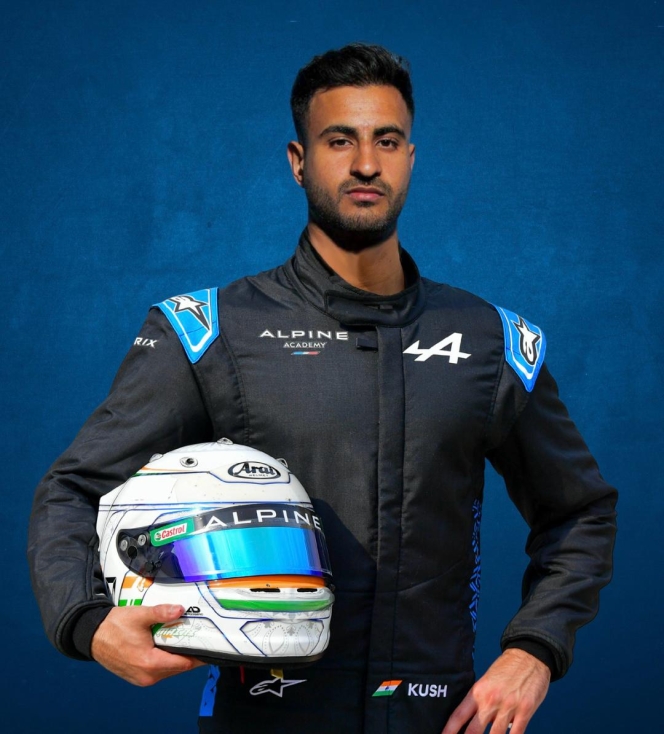
Kush Maini has become the first Indian driver in Formula 1 since 2012 by joining the BWT Alpine Formula 1 Team as their latest reserve driver for the 2025 season.
This new development not only marks the end of a 13-year hiatus for an Indian to be part of an F1 team but also makes Maini the only Alpine F1 reserve driver actively competing in the Formula 2 Championship, where he will be racing for Dams Lucas Oil. He is a valuable asset for the forthcoming campaign because of his position as the BWT Alpine F1 Team's Formula 1 Reserve and Test driver. Kush will keep testing the F1 vehicle to obtain useful knowledge and offer input in order to support the team and enhance his own growth and performance.
Last season, Maini impressed stakeholders with his performance in each of the four tests he did with the BWT Alpine F1 Team. With five podium finishes and a memorable win in Hungary, the young Indian driver had an outstanding Formula 2 season the previous year and was instrumental in Invicta Racing's Teams' Championship victory for the 2024 F2 season. In Jeddah, he also created history by being the first Indian driver to win a Formula 2 pole position.
Maini said, "Being a reserve driver for the BWT Alpine F1 Team is an incredible opportunity and a moment of immense pride for me and my family, as it’s been my dream to represent Tricolor in F1. This is a once in-a-lifetime opportunity, and I’m deeply grateful for the trust the team has placed in me. I’m excited to kickstart 2025 and continue this remarkable journey.”
Julian Rouse, Director, Alpine Academy, said, “We are very happy to announce the expansion of Kush’s role in the Alpine Academy to include Test and Reserve Driver duties for the team this season. Kush has impressed the team across his TPC performances and Formula 2 results whilst we have been working with him, and we expect he will continue to do so in 2025. His wider role allows us to further expand our pool of driving talent who can provide support and resource to the whole team during the busy season.”
Mentor Mika Hakkinen said, “Kush’s inclusion into the BWT Alpine F1 team for 2025 as a reserve and test driver is a big step forward not only for his journey but also for Motorsport in India. As his mentor, I’ve seen his dedication and talent firsthand, and this recognition was long due. This is an exciting time for motorsport in India, and Kush is leading the way for the next generation. The journey is just beginning – let’s support him all the way!”
Ajit Ravindran, MD, Meraki Sport & Entertainment, said, “Having this kind of representation in Formula 1, the pinnacle of motorsport, is a significant moment for India. This development opens valuable opportunities for brands to tap into Kush’s global reach and engage with a wide and diverse audience.”
Hindustan Zinc Attains 26.3% Women Workforce Representation
- By MT Bureau
- March 04, 2026
Hindustan Zinc (HZL) has recorded 26.3 percent women representation across its workforce, according to a company announcement. This figure marks the highest gender diversity level in India’s metals and mining sector.
The company employs over 745 women professionals, with 314 serving as engineers or in equivalent technical roles. Women at the company are currently involved in frontline operations, including underground mining, smelting, lead mine rescue and heavy machinery operation.
Hindustan Zinc has implemented Industry 4.0 practices, including robotics, automation and tele-remote underground operations, to standardise processes. These technologies have enabled the inclusion of women in night shifts and underground roles traditionally dominated by men.
Key workforce milestones and initiatives include:
- Frontline Roles: Women operate heavy machinery and manage night shifts in both mining and smelting units.
- Mine Rescue: The company has formed an all-women underground mine rescue team.
- Digital Infrastructure: Operations use drone-based surveillance and remote blasting systems to enhance safety.
- Workplace Policies: HZL offers a one-year childcare sabbatical, a spouse hiring policy, and work-from-home flexibility.
The company has launched a 25-day campaign titled “She Knows the Ground She Stands On” to encourage women to pursue careers in STEM and mining. As part of this initiative, 15 women from science institutions were invited to visit the company’s mining ecosystem to engage with operational teams and digital technologies.
Arun Misra, CEO, Hindustan Zinc, said, “Empowering women in mining is not merely a matter of equity, it is a strategic imperative for the future of the industry. At Hindustan Zinc, a culture has been cultivated where women lead from the front—whether operating underground mines, driving automation, or advancing sustainable metallurgy. ‘She Knows the Ground She Stands On’ reflects a commitment to challenging outdated norms and ensuring that every capable woman has the opportunity to grow and excel. As the company works toward achieving 30% diversity by 2030, the focus remains on building a workplace where inclusion fuels innovation and gender is never a barrier to excellence.”
The company aims to reach a 30 percent diversity target by 2030. The current campaign is scheduled to conclude on 8 March 2026
- BYD
- Chinese Corporate of the Year
- China-Britain Business Council
- China-Scotland Business Awards
- Chinese Burns Supper
BYD Named Corporate Of The Year At China-Scotland Business Awards
- By MT Bureau
- March 03, 2026
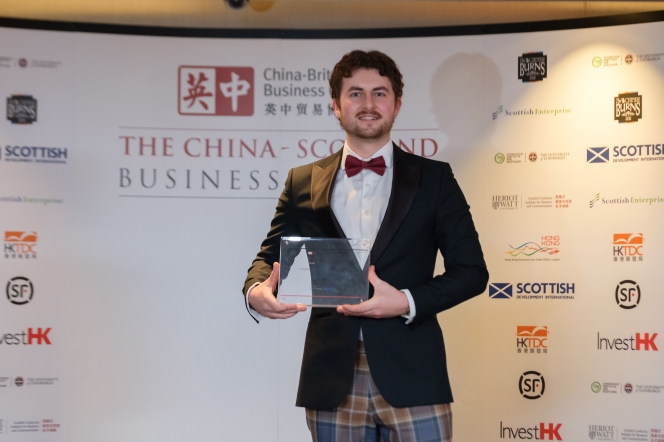
BYD has been named as Chinese Corporate of the Year at the China-Britain Business Council’s annual China-Scotland Business Awards held at a recent ceremony in Edinburgh. The accolade was presented during the CBBC’s Chinese Burns Supper, an event now in its 13th year and firmly established in the bilateral business calendar.
This particular award recognises the significant contribution of Chinese enterprises to the Scottish economy. The council specifically highlighted BYD’s substantial influence in advancing the sustainable growth of the New Energy Vehicle sector within the Scottish market, alongside the company’s impressive UK-wide sales performance, which has now surpassed 50,000 vehicles. Liam Howel, Deputy Head of Retailer Marketing for BYD UK, accepted the award on behalf of the company.
The China-Britain Business Council, serving as the UK’s premier business network for fostering trade and investment with China since 1954, acts as an independent voice for business, providing members with essential advice, analysis and access to opportunities.
Beyond the awards, the evening also served a charitable purpose, raising funds for the Migrant Children’s Foundation, an organisation dedicated to enhancing the lives and educational opportunities of underprivileged children in China through various health and learning initiatives.
Bono Ge, Country Manager, BYD UK, said, “It’s a huge privilege for BYD to have been presented with this award. Receiving this recognition is further endorsement that BYD is pushing in the right direction; we are not only producing cars which appeal to buyers and buses that keep the public transport sector moving but further forwarding the move towards sustainability via our energy storage solutions. Most of all, we are creating a business that supports local jobs both in Scotland and the rest of the UK.”
Panasonic Automotive Systems To Rebrand As Mobitera Inc.
- By MT Bureau
- March 01, 2026

Japanese tier 1 supplier Panasonic Automotive Systems Co., has announced it will change its corporate name and brand to Mobitera Inc., effective 1 April 2027. The rebranding follows a strategic partnership formed in December 2024 with the Apollo Group, aimed at strengthening software development and optimising the company's business portfolio.
The transition to Mobitera represents the company's focus on the evolution of the in-vehicle cockpit space. The new name combines ‘mobility’ with the Latin ‘iter’ (path) and the Japanese ‘terasu’ (to illuminate).
The organisation is pivoting to meet market demands by prioritising software capabilities alongside its hardware legacy. The company’s mission has been defined as creating a sustainable mobility society, supported by a vision titled ‘Joy in Motion.’
The new logo features a central ‘I’ intended to symbolise a focus on individuals. The corporate colour, ‘Mobitera Blue-Green,’ has been selected to represent the harmonisation of society and the environment.
Masashi Nagayasu, Chief Executive Officer, Panasonic Automotive Systems, said, “Mobitera reflects our vision to power the future of mobility with our high-quality technologies that elevate and enrich the human experience. As we evolve our organisation to meet the needs of today’s rapidly changing market, we are committed to staying true to the core values that have long defined who we are.”
| Before change: | After change: |
| Panasonic ITS Co., Ltd. | Mobitera ITS Inc. |
| Panasonic Automotive Systems India Pvt. Ltd. | Mobitera India Pvt. Ltd. |
| Panasonic Automotive Electronics Co., Ltd. | Mobitera Solutions Inc. |
| Panasonic System Networks Evaluation Technology Co., Ltd. | Mobitera Evaluation Technologies Inc. |
| Harima SANYO Industries Co., Ltd. | Mobitera Wel Inc. |
| Panasonic Automotive Systems America, LLC | Mobitera America, LLC |
| Panasonic Automotive Systems de Mexico S.A. de C.V. | Mobitera De Mexico, S.A de C.V. |
| Panasonic Automotive Systems Reynosa Mexico S.A. de C.V. | Mobitera Reynosa Mexico, S.A de C.V. |
| Panasonic Automotive Systems Monterrey Mexico S.A. de C.V. | Mobitera Monterrey Mexico, S.A. de C.V. |
| Panasonic Automotive Sales Company de Mexico, S.A. de C.V. | Mobitera Sales Company de Mexico, S.A. de C.V. |
| Panasonic Automotive Shared Services Company Mexico, S.A. de C.V. | Mobitera Shared Service Company Mexico, S.A. de C.V. |
| Panasonic Automotive Systems Europe GmbH | Mobitera Europe GmbH |
| Panasonic Automotive Systems Czech, s.r.o. | Mobitera Czech, s.r.o. |
| OpenSynergy GmbH | No change |
| Panasonic Automotive Systems Asia Pacific Co., Ltd. | Mobitera Asia Pacific Co., Ltd. |
| Panasonic Automotive Systems Malaysia Sdn. Bhd. | Mobitera Malaysia Sdn. Bhd. |
- IAC India
- Lumax Group
- IAC Group
- Mahindra
- VECV
- Maruti Suzuki India
- Skoda
- Volkswagen
- Stellantis
- Sunil Koparkar
IAC India Bets On Engineering Depth & Diversification, Targets 20% CAGR Growth Till FY2030
- By Nilesh Wadhwa
- February 28, 2026

Sunil Koparkar, Managing Director, IAC India, outlines the company’s strategy to reduce customer concentration, expand exports and leverage group synergies following its integration with the Lumax Group.
As India’s automotive interior market evolves towards premiumisation, localisation and faster product cycles, IAC India, part of the Lumax Group, is repositioning itself beyond a single-customer dependency model – without diluting its core partnerships.
IAC India continues to derive a significant share of its revenue from Mahindra’s passenger vehicle business. While the concentration remains high, Koparkar is clear that diversification will be driven through growth rather than dilution.
“Mahindra will always be our primary customer. We have a very strong strategic partnership. But we are also working on expanding with other OEMs and in the commercial vehicle space. Our goal remains a 20 percent CAGR,” he says.
For FY2025, IAC India USD 140 million in revenue, and is targeting a 20 percent growth in FY2026. The company counts Mahindra as its primary customer with almost 78 percent of its business coming from them, while Maruti Suzuki India (12%), Volvo Eicher Commercial Vehicles (5%), Skoda-Volkswagen (3%) and Stellantis (1%) contribute towards the remaining business.
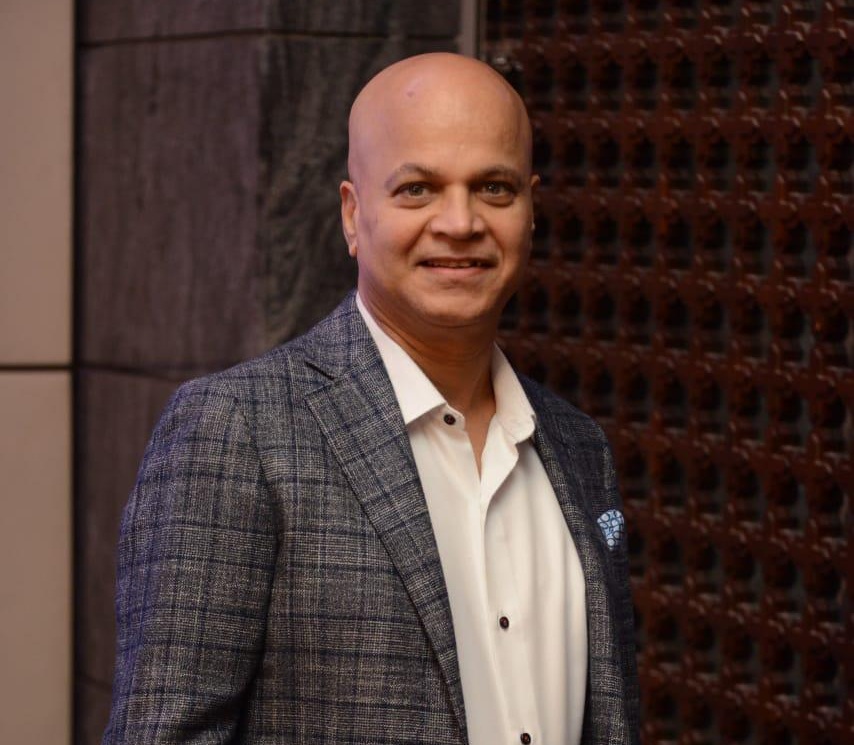 What’s more, responding to the company’s expansion plans, Koparkar revealed, that IAC Group, in addition to introducing new products, is also in talks with new-age players who have just entered Indian market (and also planning too) for supplying products.
What’s more, responding to the company’s expansion plans, Koparkar revealed, that IAC Group, in addition to introducing new products, is also in talks with new-age players who have just entered Indian market (and also planning too) for supplying products.
Currently, passenger vehicles account for roughly 90 percent of the business, with commercial vehicles forming the balance. Value-wise, Koparkar expects CV contribution to rise, even if percentage splits remain broadly similar due to the rapid growth of PV volumes.
Responding to a query on the potential growth from the CV segment, Koparkar said, “There is clear potential in CV interiors. As the CV market moves towards more comfortable cabins — with features like airbags, HVAC and infotainment — the opportunity for interior suppliers increases. Through Volvo Eicher, we have already helped drive that trend in India.”
When asked about the company’s expansion plans, Koparkar also stated that IAC Group is open to expanding to new regions as it aims to operate closer to its customers. One of the potential new projects for the company could very well be Chennai, as the company is in early talks with a new CV customer as well as VinFast.
Engineering as a Standalone Growth Lever
A key pillar of IAC India’s strategy is its expanding engineering capability. The company has been scaling up its R&D and product development team and increasingly positioning engineering services as a distinct revenue stream.
The company at present, employs over 300 engineers in India, which it aims to scale it upto 400-plus by next year and 500-plus in the coming few years.
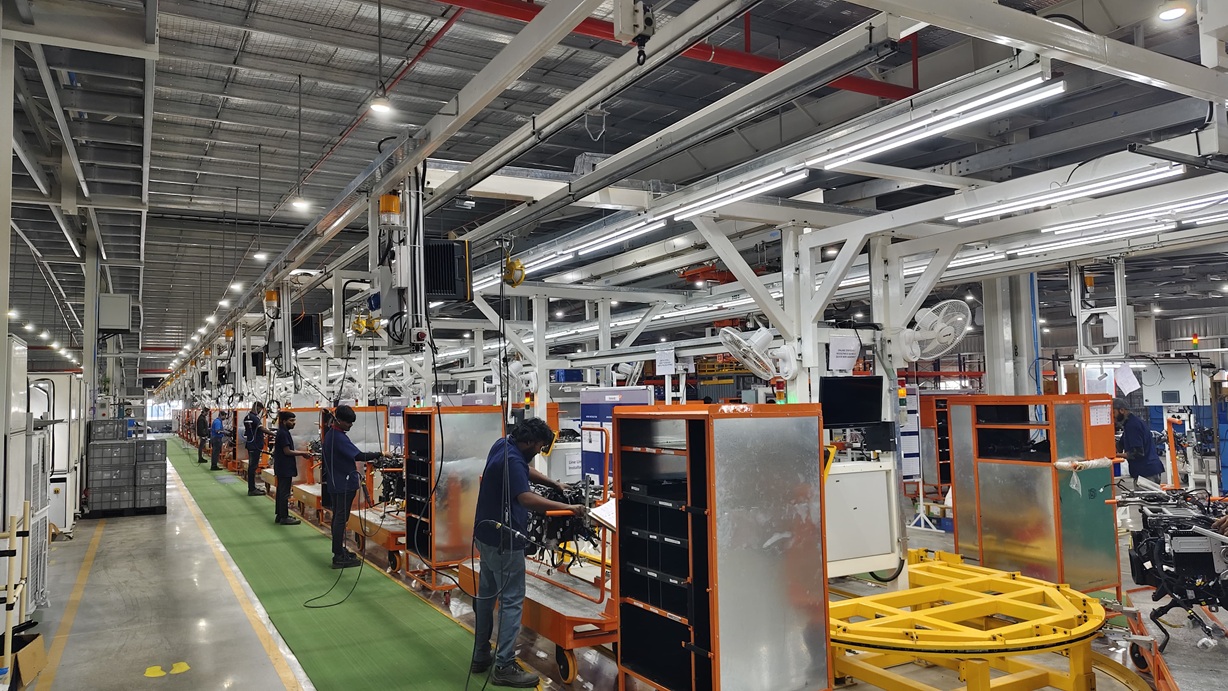
Historically, the Indian Engineering Centre supported the global IAC Group. “We were primarily the IAC Group engineering development centre. We will continue to provide those services. But now, besides global support, we are also offering engineering services to local OEMs,” Koparkar explains.
These services span studio collaboration, basic product design, CAE analysis and prototype development. In some cases, this can potentially evolve into full-scale supply programmes.
Importantly, innovation is now being formalised locally. “This year alone, we are in the process of filing about 30 patents,” he says. Earlier, intellectual property was subsumed under the global entity; now, filings are being initiated in India.
R&D investment remains aligned with group benchmarks at around 1.5–2 percent of revenue.
Exports: Measured Ambition
In terms of export potential, it currently contributes less than 5 percent towards the revenue, primarily through smaller kinematic parts. Direct exposure to the US market is negligible.
“Tariff-related uncertainty does not affect us because we do not export to the US,” Koparkar says. “Logistically, it does not make sense to ship our large interior parts there.”
Europe remains the primary export target. “The opportunity lies in leveraging our design capabilities and local development strengths. If logistics can be managed efficiently, there is room to grow.”
He also sees the Lumax Group’s aftermarket division as a future vehicle for export expansion.
Localisation and Supply Chain Resilience
On the localisation front, IAC India has made significant progress. “Last year was the first time we were able to localise over 99 percent of our tooling and development in India,” Koparkar states. Machinery on shop floors is largely localised, with only certain raw materials still imported.
The semiconductor crisis, he adds, had minimal direct impact. “We do not source electronics for our products — that is handled by the customer. However, from a development perspective, we are evaluating secondary substitutes for imported components, so we are prepared in case of disruptions.”
Premiumisation, Sustainability and AI
Premiumisation is currently the dominant interior trend. “Customers are moving away from basic plastics to more premium-feel interiors. Electronification is a big driver,” Koparkar says.
Sustainability, however, remains nascent in India. “There is no specific push for sustainable materials yet. What OEMs are looking for is lightweighting to meet upcoming CAFE norms. If a sustainable material delivers significant weight reduction, then it becomes serious.”
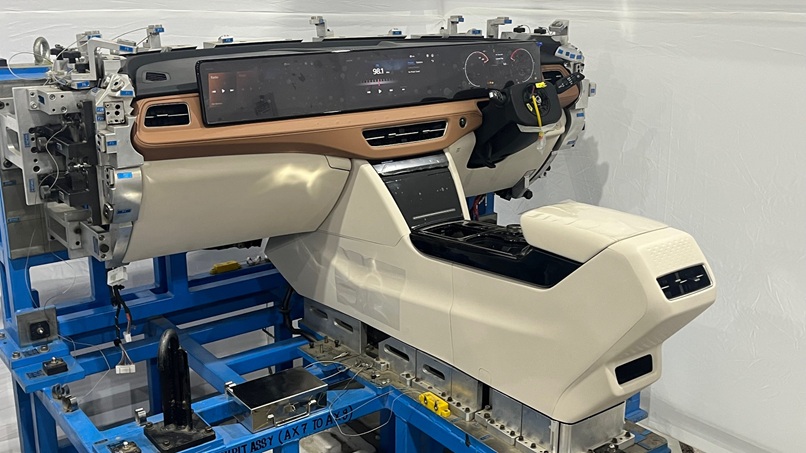
He points to jute, coir and bamboo fibres as potential alternatives but stresses that ecosystem-level collaboration is essential. “Unless a circular economy develops around us, sustainable materials will struggle to scale.”
On automation, operations across IAC’s six plants are roughly a 50:50 mix of automated and manual processes, depending on volume justification. Cobots and semi-automation are used where full automation does not offer viable returns.
AI, meanwhile, is expected to influence design more than manufacturing. “We see AI helping us accumulate design learnings and reduce design cycle times. Its impact will be more visible in engineering services than on the shop floor.”
Faster Development Cycles
Product life cycles are shrinking rapidly. “It used to take five years to develop a car,” Koparkar reflects. “With the XUV700, we worked with the customer to shrink that to 42 months. EVs are being developed even faster.”
As development timelines compress and interiors become more technology-intensive, IAC India is betting on engineering depth, localisation strength and group synergies to sustain its 20 percent growth ambition – while steadily broadening its customer and geographic footprint






Comments (0)
ADD COMMENT